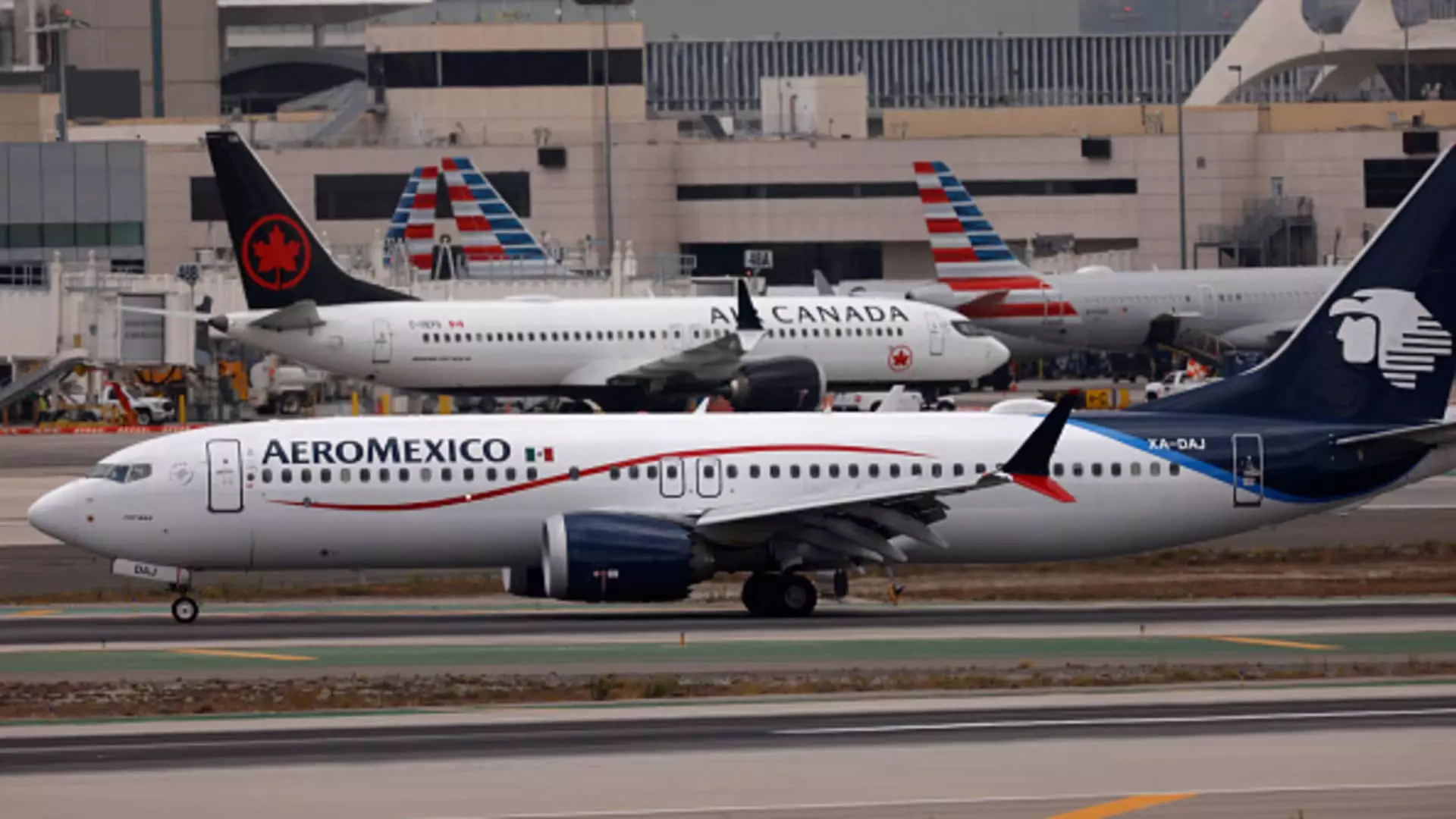The decision by the Biden administration to dismantle the long-standing joint venture between Delta Air Lines and Aeromexico marks a significant shift in U.S. aviation policy and its approach to international competition. The Department of Transportation cites concerns about anti-competitive practices that allegedly give these airlines an unfair advantage in the lucrative market between the U.S. and Mexico City. While these claims aim to safeguard consumer interests, they may overlook the intricate balance of benefits that such collaborations can foster, including enhanced service efficiency, expanded route options, and economic growth.
Rather than merely penalizing the airlines, this move prompts a deeper reflection on how international partnerships should be regulated. The government’s aggressive stance suggests a prioritization of competitive fairness over potential economic gains derived from joint ventures. However, history indicates that these alliances often lead to improved connectivity and consumer benefits, especially in regions where market competition is limited. The real issue might lie in whether the regulatory framework is nuanced enough to foster fair competition without stifling cooperative innovations that can benefit travelers.
The Impact on Industry and Consumers
Delta and Aeromexico have expressed disappointment, emphasizing that their partnership offers tangible benefits—saving costs, expanding flight options, and strengthening economic ties. Delta, specifically, warns of “significant harm” to U.S. jobs and communities, highlighting the complex economic web intertwined with airline alliances. This indicates that halting the joint venture could have ripple effects far beyond the airline industry, impacting tourism, trade, and regional economic development.
Yet, critics may argue that such collaborations tend to concentrate market power, reducing competition in the long run. The shift towards traditional competitive models could encourage more carriers to innovate independently, which might ultimately lead to better prices and services for consumers. However, this transition is likely to be disruptive in the short term, threatening jobs and economic stability in communities reliant on these airlines.
Broader Implications and Future Trajectories
This decisive intervention fits within a broader context of escalating U.S.-Mexico rivalry in economic and trade realms. Competition concerns reflect underlying tensions about market dominance and sovereignty, especially in sectors as vital as transportation. The administration’s move may be interpreted as an effort to recalibrate the balance of power, favoring aggressive anti-trust enforcement to prevent monopolistic behaviors.
Conversely, this decision could inadvertently push teams like Delta and Aeromexico to pursue alternative forms of cooperation—possibly more fragmented but perhaps more flexible. It raises questions about the sustainability of tightly knit alliances in a dynamic global economy where cooperation often drives innovation. While the immediate fallout may seem to favor larger regulatory objectives, the true challenge lies in striking an equilibrium that encourages both fair play and growth.
The future of U.S.-Mexico air travel hinges on how regulators navigate this complex landscape. Disruption could either serve as a catalyst for more competitive, diverse partnerships or foster a climate of mistrust and defensive strategy among airlines. The stakes are high, not just for the companies involved but for the millions of travelers whose journeys depend on balanced, innovative industry practices.


Leave a Reply